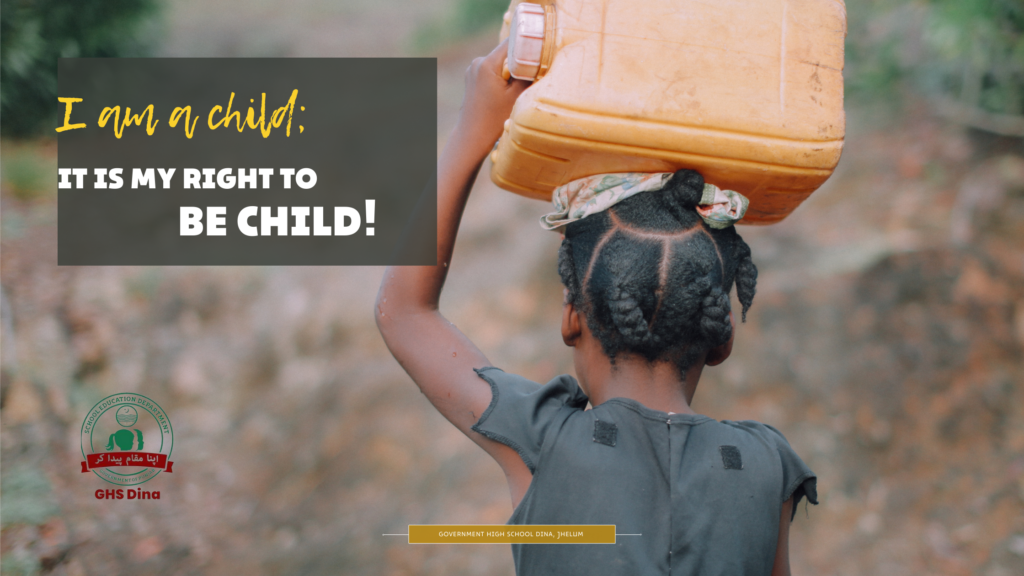Child labor remains a significant issue in Pakistan, despite various efforts to curb it. Millions of children are trapped in a cycle of poverty, working in hazardous conditions instead of attending school. This not only robs them of their childhood but also deprives them of the education and opportunities needed to break free from poverty. It is imperative to take decisive actions to stop child labor and ensure every child has access to education.
#### The Scope of the Problem
In Pakistan, child labor is prevalent in various sectors, including agriculture, manufacturing, and domestic work. According to the Pakistan Bureau of Statistics, approximately 12.5 million children are involved in labor. These children often work long hours under dangerous conditions, facing physical and emotional abuse. The economic hardships faced by their families compel them to contribute to household incomes, perpetuating the cycle of poverty and illiteracy.
#### The Impact of Child Labor
Child labor has far-reaching consequences, not just for the children involved but for society as a whole. Children who work miss out on education, which limits their future job prospects and earning potential. This perpetuates the cycle of poverty, as uneducated adults are more likely to have children who also end up working instead of studying. Additionally, child labor affects children’s health and well-being, leading to physical and psychological issues that can last a lifetime.
#### Legal and Policy Framework
Pakistan has laws in place to combat child labor, including the Employment of Children Act 1991 and the Punjab Prohibition of Child Labor at Brick Kilns Act 2016. The country is also a signatory to international conventions such as the United Nations Convention on the Rights of the Child (UNCRC) and the International Labour Organization (ILO) conventions on child labor. However, the enforcement of these laws remains weak, and many children continue to work in violation of these protections.
#### The Role of Education
Education is the most powerful tool to combat child labor. By ensuring that children are in school, we can break the cycle of poverty and provide them with the skills and knowledge they need for a better future. The government and various non-governmental organizations (NGOs) have launched initiatives to promote education, such as the Benazir Income Support Program (BISP) and the Education Emergency Campaign. These programs aim to provide financial support to families, reducing the economic necessity for child labor.
#### Community and Societal Support
Ending child labor requires a collective effort from all segments of society. Communities must be educated about the importance of sending their children to school and the long-term benefits of education. Businesses should be encouraged to adopt child labor-free policies and support initiatives that promote education. Civil society organizations can play a crucial role in advocacy, awareness-raising, and providing support to affected families.
#### Conclusion
Child labor in Pakistan is a complex issue that requires a multi-faceted approach to resolve. Ensuring that every child has access to education is key to breaking the cycle of poverty and securing a brighter future for the next generation. It is the responsibility of the government, civil society, businesses, and communities to work together to stop child labor and make education a priority. By investing in our children today, we are investing in a prosperous and equitable future for Pakistan.



